I believe being a web3 founder calls for doing things differently, so I’m creating a little experiment - a concept for original content centered around the idea of “building in public”.
In computer science, a syntax error is an error in the syntax of a sequence of characters or tokens that is intended to be written in compile-time. A program will not compile until all syntax errors are corrected.
Syntax // Error will be a monthly developer diary that removes the veil from our product roadmap to keep our community in the loop. I’ll do recurring episodes for both Open Meta DAO community product & Crucible’s Emergencee SDK.
In many ways we are breaking new ground, pushing the boundaries of new nascent technology. That means it’s not a straight line and we are constantly running into roadblocks and overcoming them. Rather than disappear while we work to avoid putting attention on things not going as planned - I want to start to lean into this as an opportunity for engaging with people more and giving more transparency to this process. This is a long roadmap and time horizon to a vision that will build for a decade.
This is a chance to take a closer look.
__
Branding
The challenge of a new experience.
DAOs are new, but that doesn’t mean we didn’t have a starting point for governance. There is an initial perception on what you can expect and do with proposals. Therefore, there is a concept already built on the possibilities and the experience you should be getting.
The challenge with Open Meta’s DAO was proposing something different. But, what is the core difference from which we can create our brand and its experience? Our purpose: We want to move the gaming industry into the future by embracing open protocols and standards.
We are about gaming, governance and reputation; this is what makes us different.
And this is what we came up with to show our uniqueness.. we have build a web-based governance portal - from the ground up - with both on-chain and off-chain features. It is important that we built this native so that if the community votes to change something down the line, we have the source code to do that.
A gamified experience that connects your avatar to infinite possibilities. We know DAOs are just a group of people who hopefully are a strong community, and we want to make ours feel at home — to think of Open Meta as part of their daily lives, supporting their growth and helping the Open Metaverse become a reality one proposal at a time.
UI/UX
DAOs have a huge existing pain point here.
How can we make it believable? How can we deliver this experience in a unique and consistent way? The main goal for the UI/UX Design team is to keep the concept and elements created by the Branding team in the hands of the end-user.
It is not just adding colors, fonts and shapes; it’s all about the perception the user gets: Macro to Micro layers. We want the whole experience to reflect the feelings we associate to this new future: simplicity, connectivity and expansion.
Our challenge: define the user flow, its components in detail and build the main DAO structure, one that solves today’s needs but considers future implementations. This pushes us to refine the visual concept constantly, delivering a basic powerful layout for the Dev team to implement.
In terms of usability, we want to allow members to interact with discussion threads and proposals first. We are exploring different options for data visualization. Also, creating our own “Voting sidebar” that considers everything we are expecting for a simple usage. This sidebar is the most interactive component we have in the DAO today. We have been doing iterations for stages/buttons/data/switches. Refining scenarios to find the best solution.
Development
While the Branding and Design team continued working on the visuals and translating the desired experience, the Development team was focused specifically on building the main DAO functionality. In order to reach that stage, we had to go through brainstorming sessions to define how the proposal should work, considering what would be the best and most robust platform for the Open Meta community to grow in.
As we were moving forward with the development of main features and first Smart Contracts versions, we started facing challenges (some minor, but some that made us rethink the whole structure and review foundational definitions).
For example, a first we wanted to develop all features on-chain, but realized that it was not as simple as we thought initially. The main issue? Fetching the information from the blockchain had some performance issues. In order to solve that, we decided to change our current architecture model. We designed and implemented a cache infrastructure using events in the Smart Contract and a listener in the Backend, ensuring a better performance this way.
Where are we right now? We have built Smart Contracts in Mumbai Polygon test net that allows users with Test Open Meta Tokens to interact inside the DAO. Members can create off-chain threads to discuss topics and are allowed to create on-chain proposals to formalize an opportunity into results.
Decentralized reputation is the cornerstone for long term success. A token holder with reputation, has power to vote - but any economics around tokens must be decoupled from reputation. One can not buy or trade reputation - only earn it. That means members can participate in formal voting by staking their own reputation to support an idea they believe in. This conviction can result in more reputation earned.
The Open Metaverse will have many anon avatars & identities. The mechanic of a decentralized reputation score can solve the long term challenge of anonymity with accountability. There is far more work to do and be tested here.
DAO decisions are up to the community. The community defines what governance is focused on and how to execute based on the quorum of the people being aligned.
Today, we are focusing all our efforts in creating and testing a platform that connects, supports and protects the most defiant possibilities into a decentralized and tangible reality.
Closure & Next steps
This brings us to the end of 2021. We have completed alpha testing to work out the bugs and are beginning a closed test net beta with some governance experts from our partners at DEVxDAO.
First thing next year we will mint DAO membership (tokens) and onboard our founding members.
Happy Holidays,
Ryan Gill




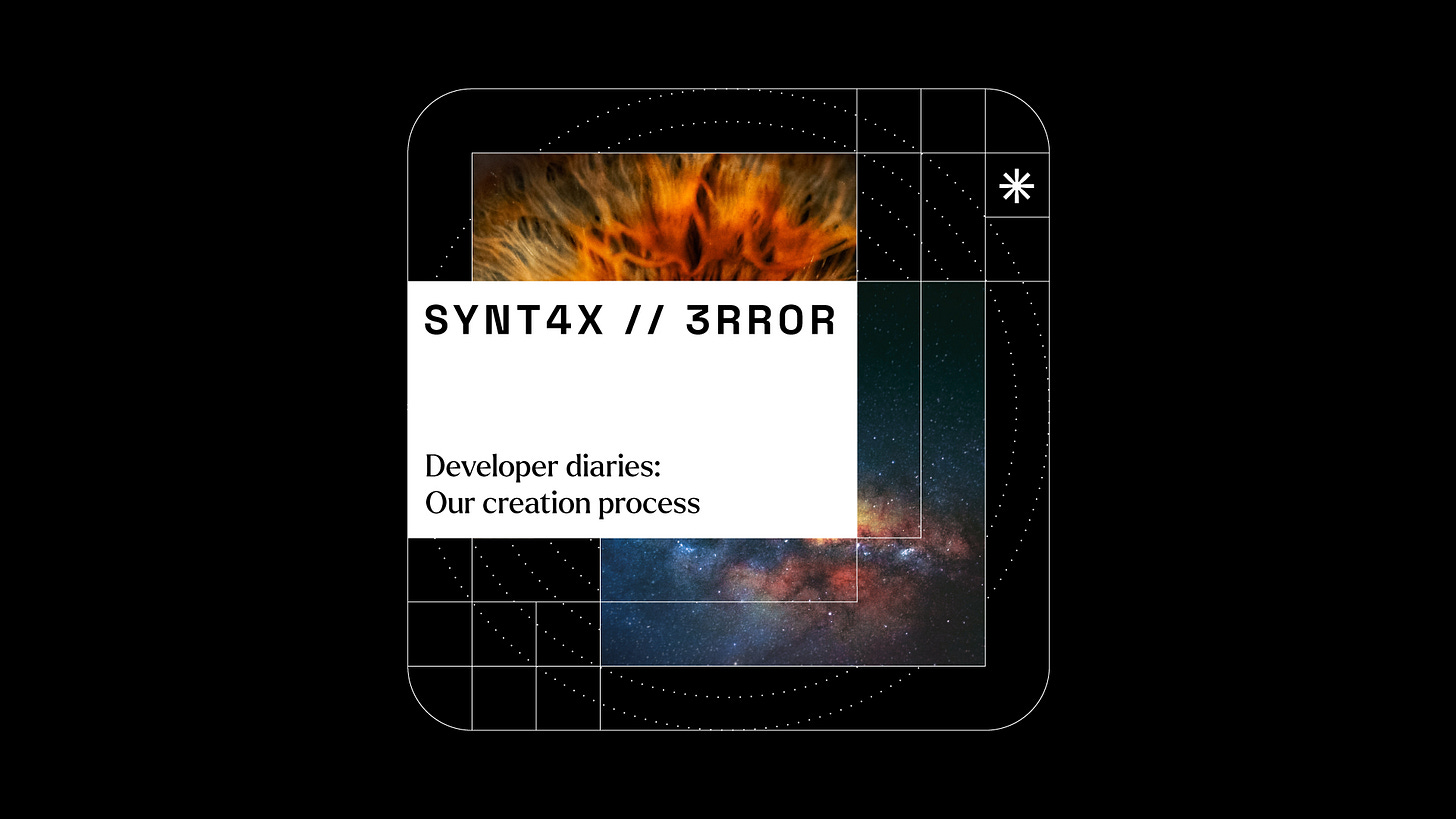
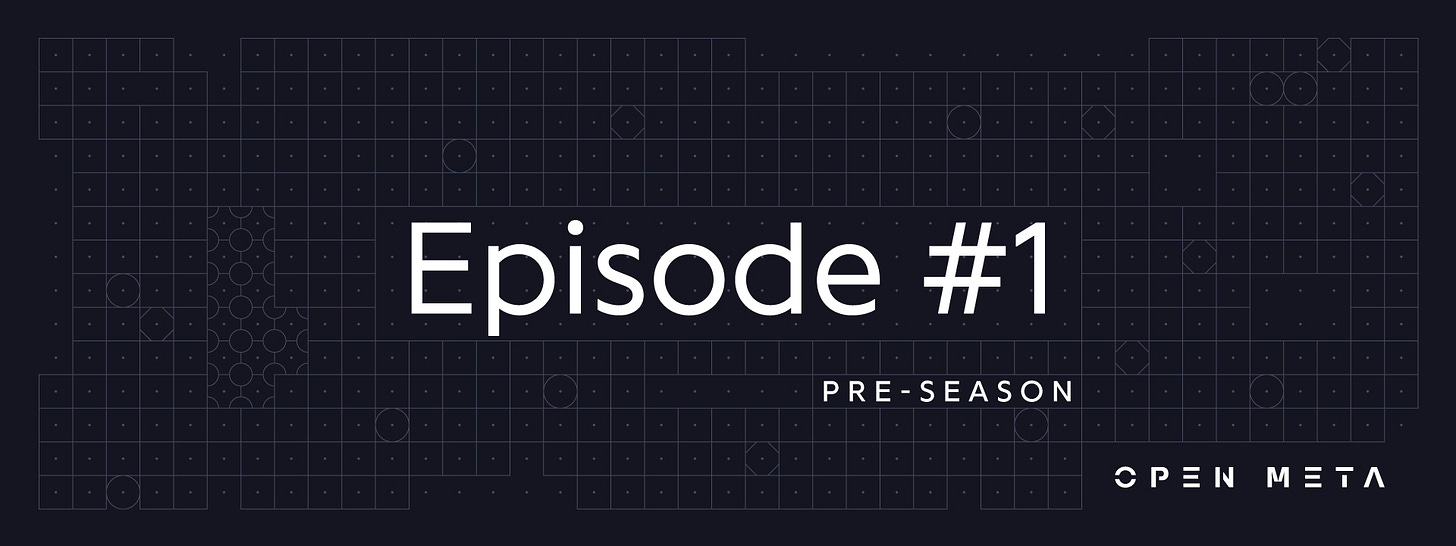
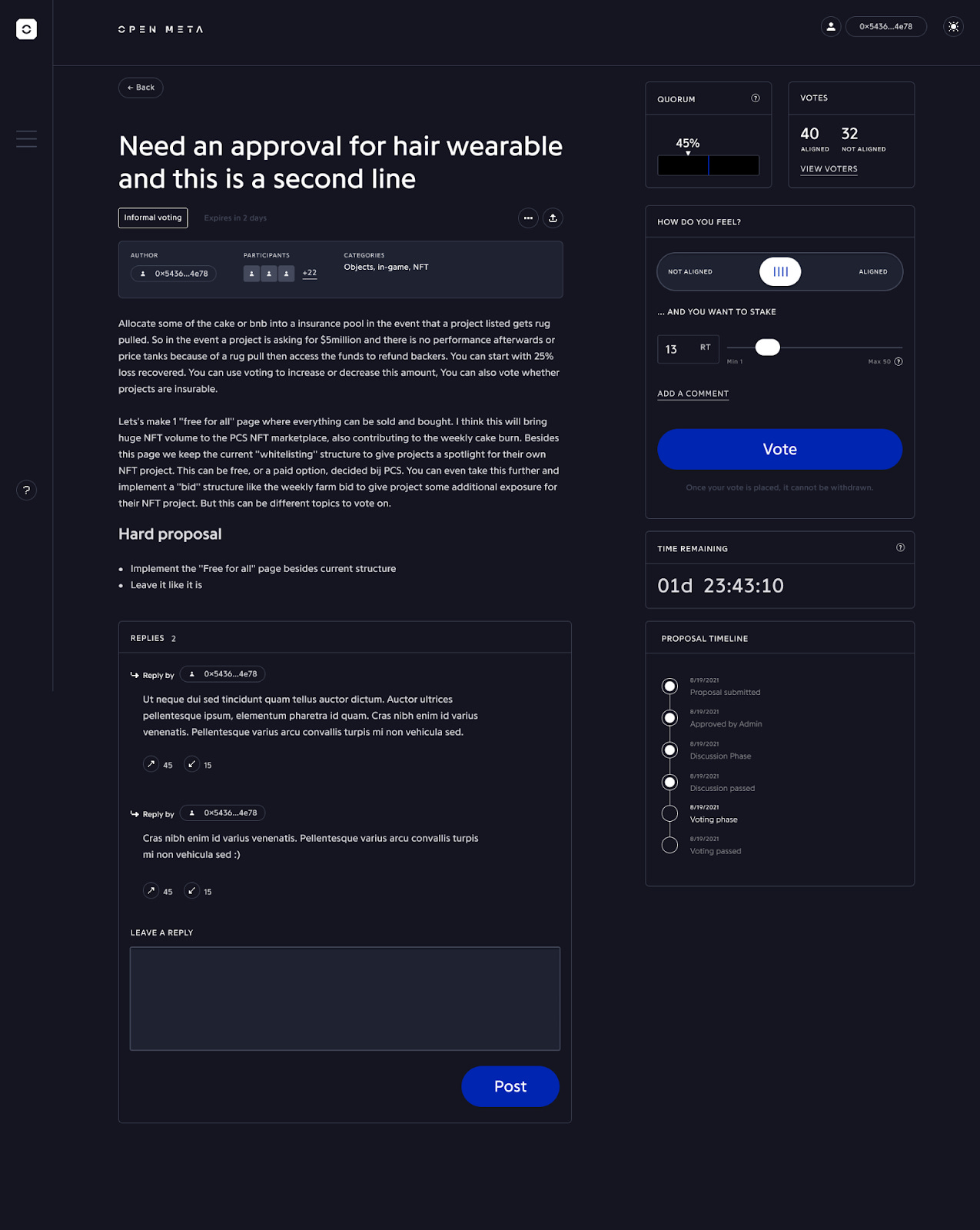
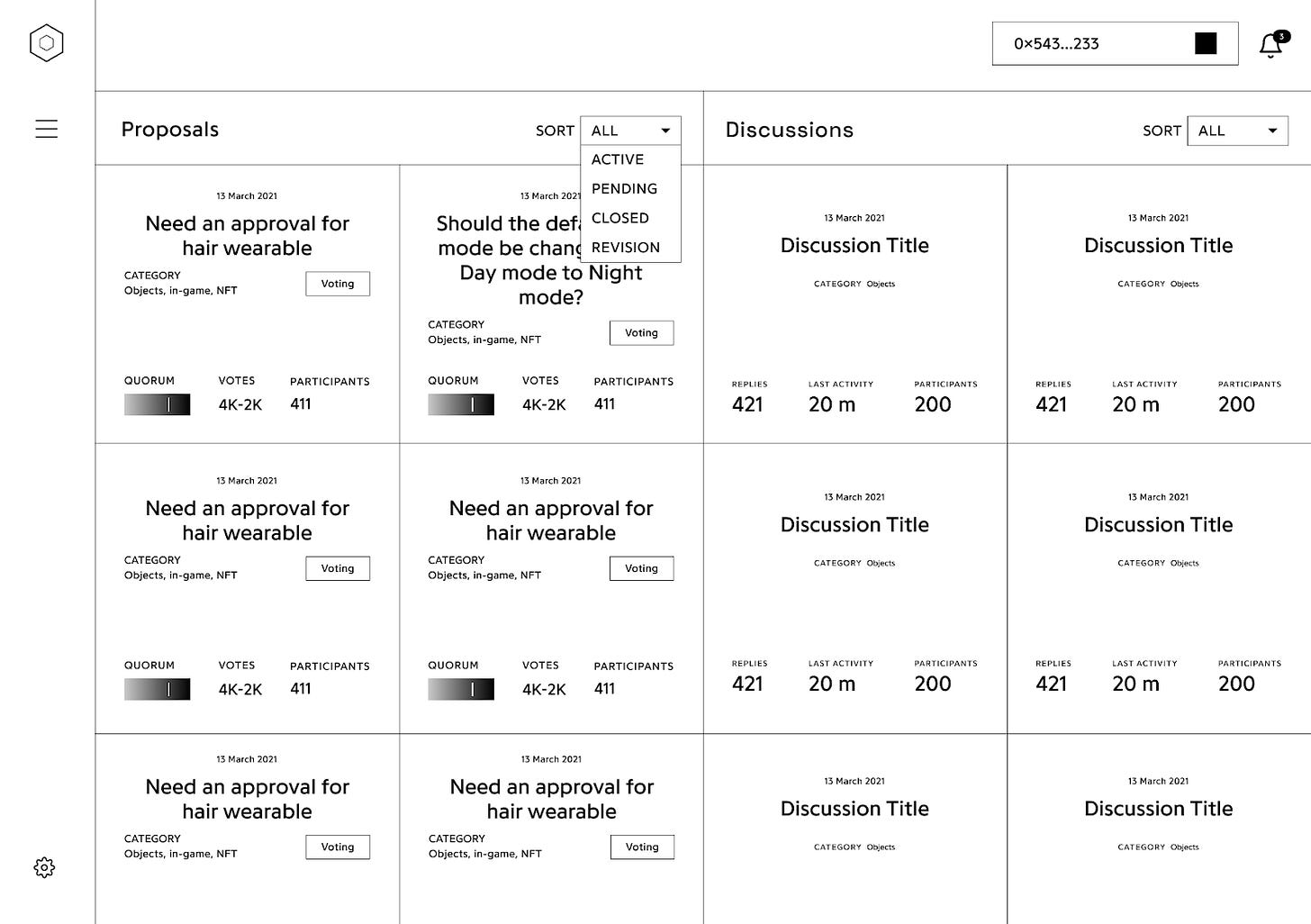
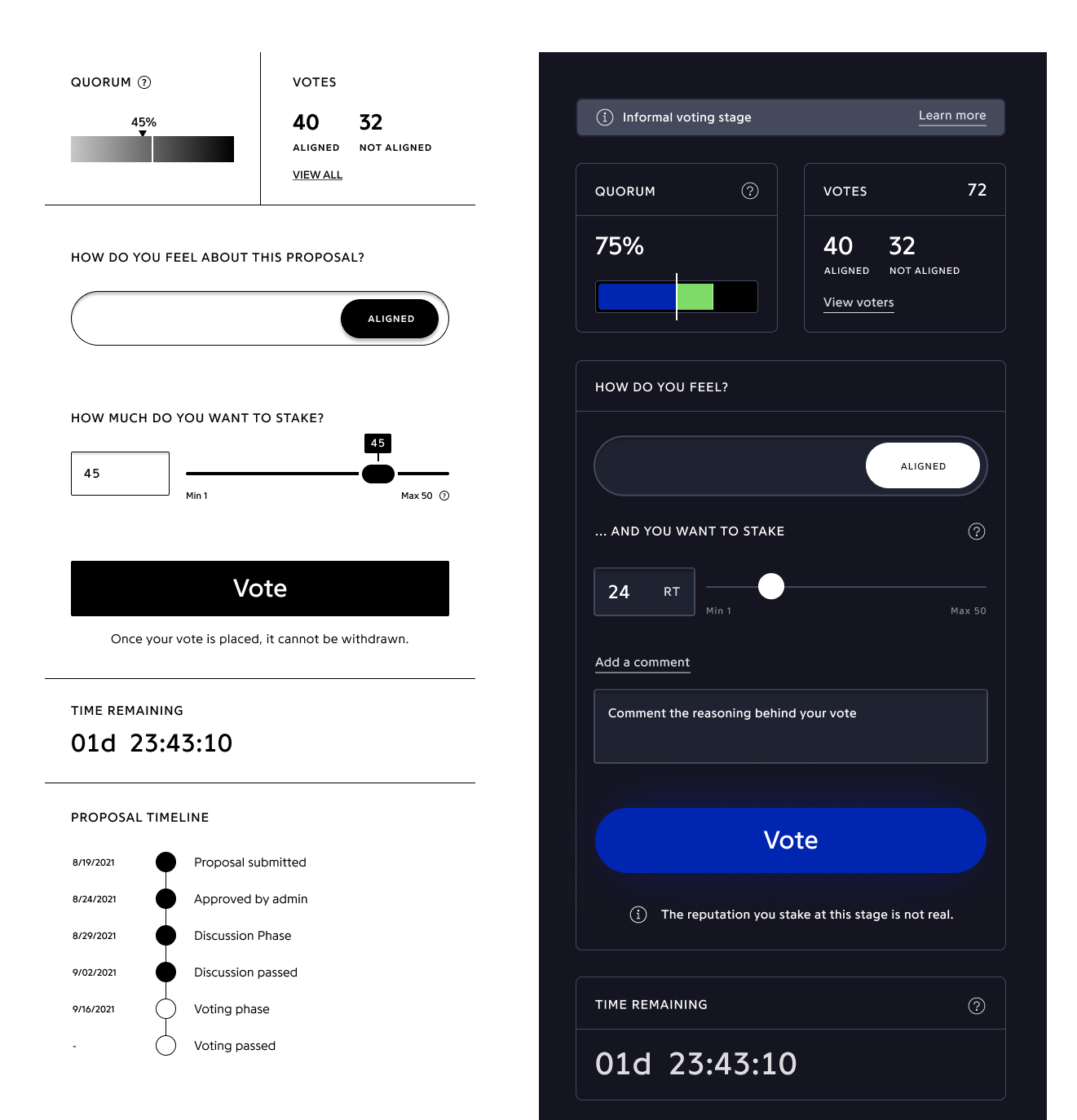

Wow - this is very well written. I'm especially interested in the public facing phrasing of DAOs. In a sense this is because it is my weakest area; I tend to do tech, but it's increasingly clear that DAOs, as a form of community organization, need to get that community facing side right.